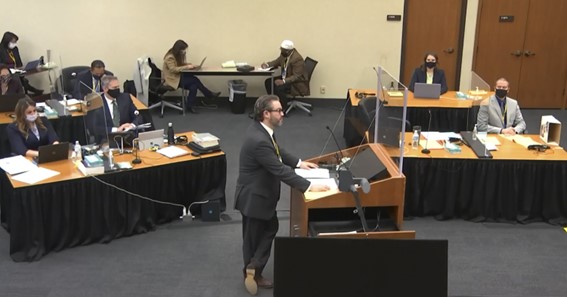Are you curious to know what is an alternate juror? You have come to the right place as I am going to tell you everything about an alternate juror in a very simple explanation. Without further discussion let’s begin to know what is an alternate juror?
In a jury trial, jurors are responsible for hearing evidence, evaluating testimony, and reaching a verdict. However, not all jurors are called upon to serve on the final jury panel. Some jurors are selected as alternate jurors and have a unique role in the trial process. In this blog post, we will explore what an alternate juror is, their responsibilities, and how they differ from the main jury panel.
What Is An Alternate Juror?
An alternate juror is a juror who is selected to hear the evidence and arguments in a trial, but is not part of the main jury panel that will ultimately reach a verdict. The purpose of alternate jurors is to provide a backup in case a main juror is unable to complete their duty, such as due to illness or other unexpected circumstances.
In most cases, alternate jurors are selected at the beginning of the trial and are present throughout the proceedings. However, they are typically not involved in the jury deliberation process unless a main juror is dismissed, in which case an alternate juror will be called upon to take their place.
Responsibilities Of An Alternate Juror:
Alternate jurors have many of the same responsibilities as main jurors. They must remain impartial and open-minded throughout the trial, listen to all of the evidence and testimony presented, and follow the instructions given by the judge.
However, alternate jurors are also responsible for paying close attention to the trial proceedings in case they are needed to replace a main juror. This means that they must remain available throughout the trial, even if they are not actively participating in the deliberation process.
How Do Alternate Jurors Differ From Main Jurors?
While alternate jurors have many of the same responsibilities as main jurors, there are some key differences between the two. Main jurors are responsible for reaching a verdict and participating in deliberations, while alternate jurors are only called upon if a main juror is dismissed.
Additionally, main jurors are sequestered during deliberations, meaning that they are not allowed to communicate with anyone outside of the jury room until a verdict is reached. Alternate jurors, on the other hand, are not sequestered and are allowed to go about their normal daily activities until they are needed to replace a main juror.
Conclusion:
Alternate jurors play an important role in ensuring a fair and impartial trial. While they may not ultimately be called upon to participate in the deliberation process, their presence provides a valuable backup in case a main juror is unable to complete their duty. Alternate jurors must remain attentive throughout the trial and be ready to step in if needed. Understanding the role and responsibilities of alternate jurors can help ensure a smooth and fair trial process.
To know more about such interesting things explore queryplex.com
FAQ
What Is The Point Of An Alternate Juror?
An alternate juror may replace a regular juror who is discharged following the return of a guilty verdict but before deliberations begin in a separate sentencing proceeding to determine aggravating factors.
Do Alternate Jurors Know They Are Alternates?
In fact, they won’t even know they are alternates. The judge won’t reveal who the alternative jurors are until attorneys have finished making their cases. That’s so that the alternates don’t yawn off during proceedings and are ready to step in if another juror is unable to continue.
What Happens If Only One Juror Disagrees?
2.6.
If even one member of the jury panel disagrees with the rest, the jury is hung, and the defendant retains the presumption of innocence. A “hung jury” results in either: a mistrial (which means there may be a retrial with a new jury), a plea bargain to a reduced charge that carries a lesser sentence, or.
How Many Alternate Jurors Are There In Sc?
Petit Jurors are summoned to serve on civil and criminal jury trials held in the District Court. A civil jury consists of six to twelve members. Criminal trials require twelve jurors with a minimum of one alternate.
I Have Covered All The Following Queries And Topics In The Above Article
What Is Required Of An Alternate Juror?
What Is The Function Of An Alternate Juror
- What Is An Alternate Juror
What Is The Duty Of An Alternate Juror
What Do Alternate Jurors Do During Deliberations
Where Do Alternate Jurors Sit
Do Alternate Jurors Sit In On Deliberations
When Do Alternate Jurors Get Dismissed
Do Alternate Jurors Get Paid
Alternate Jurors During Deliberations
How Do You Know If You Are An Alternate Juror
How Are Alternate Jurors Chosen
What Is An Alternate Juror
What does it mean when a juror alternates
